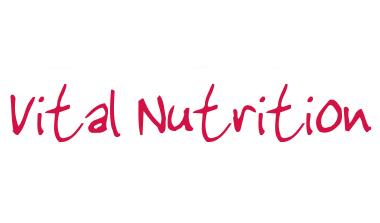Beating The Winter Blues
Mental Health / Healthy DietIf you find that the shorter days and darker nights leave you feeling a little low, you are not alone. It is thought that the winter blues, or SAD (Seasonal Affective Disorder) affects around 1 in 15 people in Ireland.
Although the signs and symptoms are similar to depression, the difference with SAD is that it is affects people in autumn and winter and improves when the seasons change in spring. For some people SAD can be a slight difference in energy levels and mood, but for others this time of year can be debilitating.
The exact cause of SAD is not fully known, but the fact that the condition is linked to reduced daylight in the shorter days of autumn and winter gives us some clues and one theory is that this affects the hypothalamus, and the balance of melatonin and serotonin.
- Melatonin is produced in higher quantities in people with SAD. This is our sleep hormone.
- Serotonin is produced in lower quantities, affecting our mood, appetite and sleep.
Our internal body clock, or circadian rhythm is affected by natural light levels, so the changes in daylight can alter the messages our body gets from nature about when we should be awake or asleep.
The symptoms of SAD include:
- Persistent low mood
- A loss or pleasure or interest in everyday activities
- Irritability
- Lethargy and feeling sleepy during the day
- Sleeping for longer than normal and finding it harder to get up in the morning
- Over eating and craving carbohydrates
It is important to talk to your GP if you are suffering from SAD, but here are some dietary and lifestyle adaptions that can be useful for all of us at this time of year:
- Invest in a daylight alarm clock. These alarms mimic the effects of daylight, so we waken more naturally, rather than to the beep or buzz of an alarm. It is a more natural way to waken and may help with feelings of stress and anxiety, as well as mood and energy throughout the day.
- Connect with nature and the cycle of the seasons. Get outside as much as you can. Top up your daylight quota by getting outside in the morning and the earlier hours of the day. Go for a walk, cycle to work or make a point of getting outside for half an hour at lunchtime, no matter what the weather is like. The more daylight we can get in the earlier part of the day, the better. This helps to reset and rebalance our sleep-wake cycle, so we are less likely to feel tired during the day, and more likely to get a good night’s sleep later
- Start your day with a protein-based meal. This may help you feel more energised and help to balance blood sugar levels, reducing the craving for refined carbs and sugar that can crash your energy levels and deplete mood. Add a tablespoon of seeds to your porridge, start your day with eggs, or get into natural yoghurt as a base for your brekkie.
- Drop the sugar and forget the refined carbs. These foods will deplete your energy levels, crash your mood and leave you wanting more. Crack the vicious sugar cycle and chose foods and snacks that have a more sustainable effect on mood and energy levels. If you get peckish between meals, snack on nuts, oatcakes and cheese or a little bit of dark chocolate.
- Keep up your daily exercise and get outside if you can. Aim for 30minutes of movement every day. Do something that you enjoy, whether that is half an hour’s gardening, getting wrapped up and going out for a brisk walk. Find an outdoors circuits class, or join your local Park Run to get outside rather than training in a gym.
- Supplement your diet. A decent multi-vitamin with B vitamins and a little extra vitamin D3 can be helpful at this time of year.
















































































